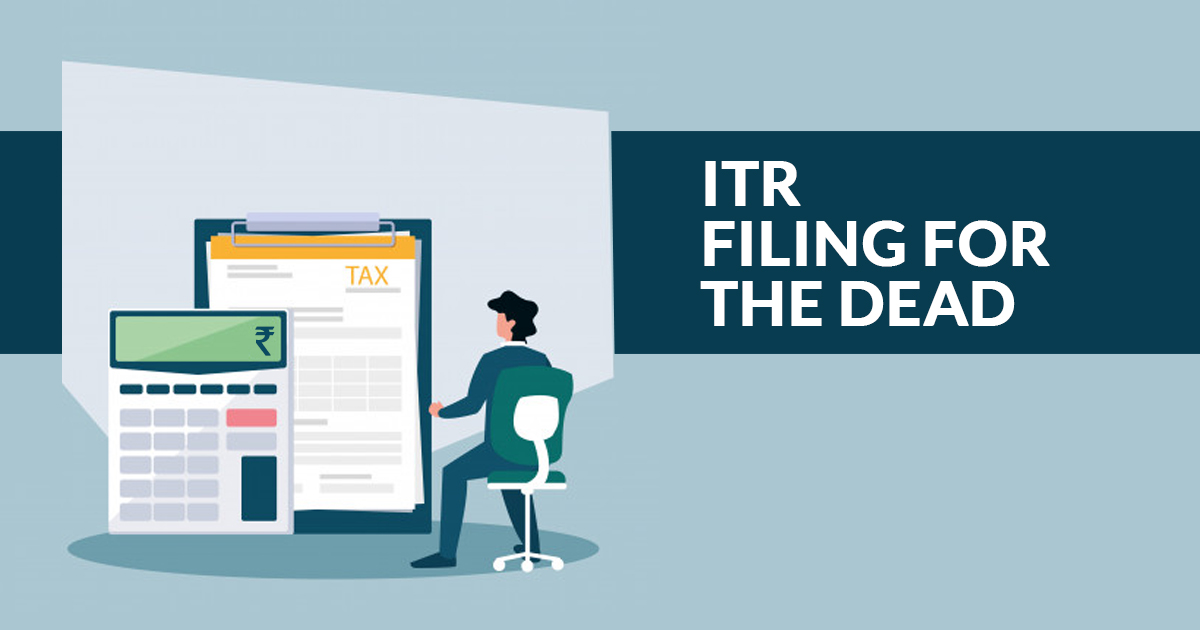The world of income tax can often feel overwhelming, especially when unexpected situations arise. Whether it is filing the last tax return for a loved one who has passed away, managing advance tax on incomes outside of salary, or calculating capital gains on property inherited decades ago, taxpayers frequently face doubts that need clarity. Let us look at three such scenarios in detail to understand what the law says and how individuals can navigate these situations effectively.

Filing Income Tax Returns for a Deceased Person
When a person passes away, their income tax obligations do not end. According to Section 159 of the Income Tax Act, 1961, the legal representative of the deceased becomes responsible for filing the final income tax return. This return must cover the period from the start of the financial year up to the date of death. The representative is also liable for any tax, interest, or penalty that the deceased would have been required to pay if they were alive. However, this liability is restricted to the value of the estate left behind by the deceased and does not extend to the personal assets of the representative.
Importantly, when assets such as bonds, shares, or property are transferred through a will or inheritance, they are not considered taxable transfers at that moment. Capital gains tax only arises later, when the inherited assets are eventually sold. For example, if bonds are inherited and are set to mature in the future, there is no immediate tax liability at the time of inheritance.

Advance Tax on Additional Income
Another common area of confusion is advance tax. Many salaried individuals assume that their tax obligations are completely fulfilled through tax deducted at source (TDS) by their employers. However, if you have additional income such as rental earnings, interest from fixed deposits, or even capital gains, you may need to pay advance tax separately.
The rule is straightforward. If your total tax liability, after accounting for TDS, exceeds ten thousand rupees in a financial year, you are required to pay advance tax. It is important to make these payments on time because even a small delay can attract interest. Deferring the payment until the time of filing your return will not remove the interest liability. Therefore, if you notice extra income reflected in your Annual Information Statement, it is prudent to calculate the shortfall and pay the advance tax immediately.

Capital Gains on Inherited Property
Inheritance of property brings its own tax questions, especially when the original purchase was made several decades ago. Consider the case of a property purchased in 1950 and inherited by the current owner about ten years ago. When such a property is sold, the cost of acquisition for tax purposes is determined as either the actual purchase price paid by the original buyer or the fair market value as on April 1, 2001, whichever is higher. This rule helps account for the long gap in years and inflationary effects.
For inherited assets, the holding period of the original owner is also counted, which means the property qualifies as a long-term capital asset. Long-term capital gains on property are taxed at a flat rate of 12.5 percent without indexation. However, properties bought or inherited before July 23, 2024, are eligible for a choice between paying 12.5 percent without indexation or 20 percent with indexation. Taxpayers can select whichever option results in a lower tax outflow, making it critical to carefully compare both calculations before filing.
Summing Up
The rules of taxation may seem rigid, but they often provide specific mechanisms to handle life events and financial complexities. Filing for a deceased person ensures that the estate is settled legally. Paying advance tax on time prevents unnecessary penalties and keeps your compliance record clean. And understanding how capital gains apply to inherited property helps you plan better when selling valuable family assets.
For more simple guides, expert insights, and actionable financial advice, follow You Finance on Instagram and Facebook. Stay informed, stay compliant, and make smarter money decisions.















